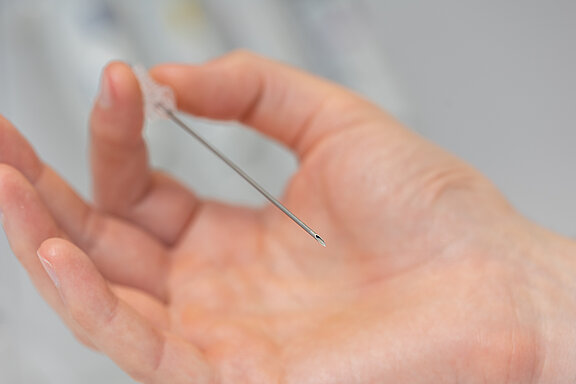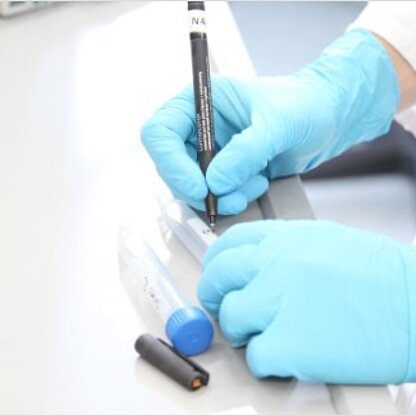
BioCompFinder

Biointerfacial Technologies
There is a wide range of medical devices that have direct or indirect patient contact, and the differences from Class I to high-risk Class III implants are correspondingly immense. Yet, all products have something in common: beyond pure functionality, they must be biocompatible.
Manufacturers of medical devices are therefore obligated to ensure the safety of their products and minimize potential risks. This also includes biological risks, which can be caused by factors such as:
- Chemicals leaching from the materials of the medical device and being absorbed by the body.
- Implants triggering a rejection reaction.
- Materials causing allergic reactions.
- Materials being degraded or transformed by the body, contrary to the manufacturer’s intention.
- Implants and materials not integrating into the body as intended.
All materials that come into contact with body tissue must be biologically assessed. Materials include all synthetic or natural polymers, metals, alloys, ceramics, or other non-viable substances, including devitalized tissues used as a medical device or as part of one. Beyond the physical properties and characteristics of the final product, the comprehensive biological assessment of a medical device also includes manufacturing-related impurities and residues, leachable components, degradation products, and other elements (such as packaging materials that are in direct or indirect contact with the final product).
Which tests are mandatory for evaluating the biocompatibility of your medical device? Our “BioCompFinder” provides the answer.
Note: Please be aware that biocompatibility testing must be conducted on the final product. If your medical device falls into more than one category, the tests required for each affected category should be considered.

Necessary Biocompatibility Tests for Your Medical Device
Determining Tests for the Biocompatibility Assessment of Your Medical Device
Regulations such as the MDR require proof of biocompatibility for all materials that come into direct or indirect contact with patients or users. Which tests are mandatory for assessing the biocompatibility of your medical device? Our “BioCompFinder” provides the best conditions for a smooth market entry.





